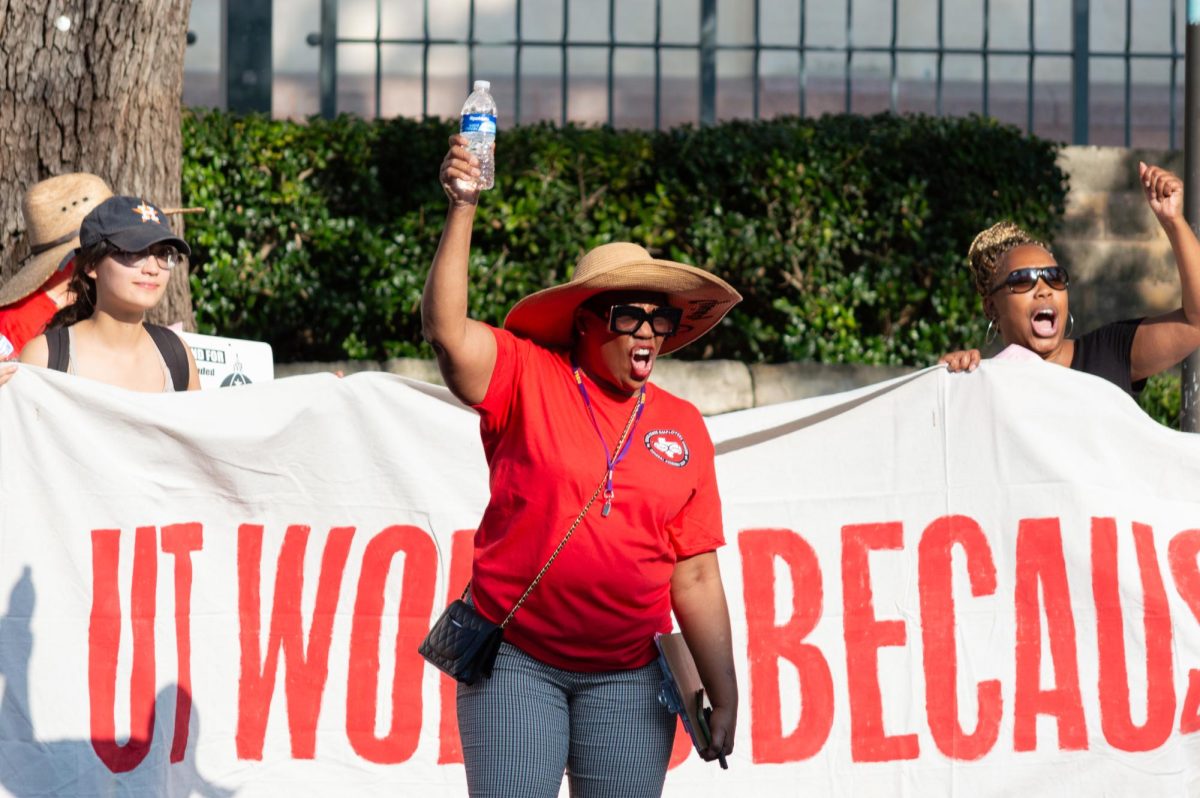Over 50 UT workers from the University’s chapter of the Texas State Employees Union rallied for a $10,000 across-the-board wage increase on Friday at the West Mall and along Guadalupe Street.
The union said the University has not acknowledged the union’s demands since its last rally in March, where members delivered a petition to the University for a $10,000 across-the-board raise. Meanwhile, the return-to-office mandate compounded with higher costs of living in Austin puts more strain on workers’ wages, union members said.
Greg Bosley, a software developer for UT, said many of his colleagues moved to find affordable housing. The return-to-office mandate means they now have longer commutes.
“Com(ing) into campus unnecessarily is a strain when we’re having to live farther and farther away from campus,” Bosley said. “And prices for housing are going up, prices for gas are unstable and public transit isn’t what it needs to be here in Texas.”
University spokesperson Mike Rosen said in an email the University “routinely assess(es) market conditions so that we can remain competitive and support the talented individuals who enable us to achieve success.”
In April 2022, the University increased the minimum wage for “professional-track” employees from $11 to $15, according to a 2022 statement.
The University also increased the merit pool, or the money available to workers for merit raises, in 2022. The statement extended eligibility to teaching assistants and assistant instructors. Workers can get merit raises for “going above and beyond” in their work.
Missy Bolbecker, an organizing coordinator for the union, said merit raises are not distributed equally and don’t keep up with inflation, highlighting the need for an across-the-board raise.
“Some people get (merit raises) some of the time,” Bolbecker said. “The years that people get it, you might keep up with the cost of living. The years that people don’t get it, you’re falling further and further and further behind.”
Bosley said one of the union’s biggest challenges is that Texas university workers are not allowed to collectively bargain with the University per state law. He said he hopes a federal law allowing collective bargaining will pass after the upcoming elections, but he will continue advocating for a raise in other ways.
“We can either sit and stew at our desks, or we can come together (and) talk to our coworkers,” Bosley said. “If we come together, we can direct our frustrations in a way that the University can’t ignore us.”















